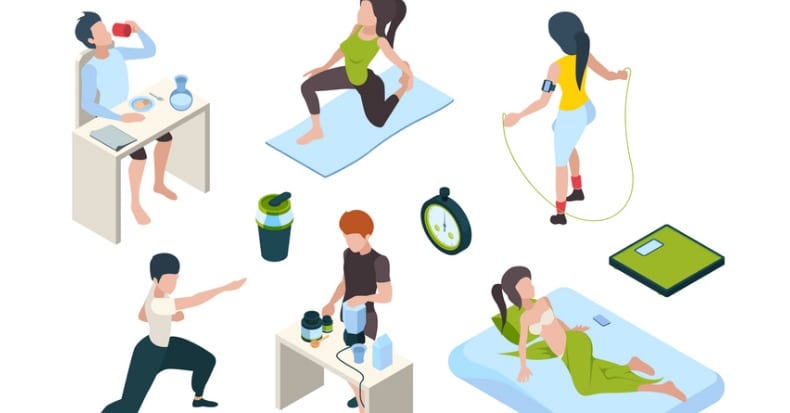Though some element of our overall wellbeing is defined by our genetics, there is a lot you can do to live a long and healthy life. Here’s a short list:
- Get enough sleep. While the average adult needs only seven to nine hours of sleep a night to feel rested, younger age groups usually require much more: infants (0-3 months): 14-17 hours/day; 4-11 months: 12-15 hours/day; toddlers: (1-2 years old) 11-14 hours/day; pre-school (3-5 years old): 10-13 hours/day; school age (6-13 years old): 9-11 hours/day; and teenagers (14-17 years old): 8-10 hours/day. An expectant mother may need additional sleep, especially early in the pregnancy.
- Exercise at moderate intensity for at least 30 minutes a day (brisk walk, bike ride, jog, yoga, tai chi, etc.). Federal guidelines also recommend strength training the major muscle groups twice a week.
- Avoid added sugars, sugary drinks, and processed foods. Eat more whole grains, fruits, and vegetables. Not only will it help you maintain a healthier body weight, but you’ll also improve the make-up of your gut microbiota, which can bolster your immune system.
- Consider supplementation if your diet is deficient in important vitamins and minerals. For example, a 2017 study published in the journal Nutrients reported that vitamin C can enhance the production of B- and T-cells, which are related to the body’s ability to fight off infections. Moreover, the study noted that vitamin C deficiency is associated with impaired immunity resulting in higher susceptibility to infection.
- When (not if) stress hits, take five slow, deep breaths (in your nose and out of your mouth). Consider mindful meditation or schedule relaxing activities into your day.
- Engage in social networks (senior centers, church, and book clubs or go to plays, music events, and art galleries with a friend), preferably in person but virtually (phone or video chat) if that’s not feasible.
- Laughing reduces stress hormones, boosts white blood cells, and keeps you healthy.
- Wash your hands with soap and water regularly, use hand sanitizer regularly (if it’s not possible to wash your hands), don’t touch your eyes, nose, and mouth; cover your mouth with your arm when you sneeze, and stay home when you’re ill.
- Spend time in the sun or take a vitamin D supplement. Studies show that individuals with poor vitamin D status may be at an increased risk for upper respiratory infection and impaired immune response.
Of course, if you experience musculoskeletal pain, like neck or back pain, schedule an appointment with your doctor of chiropractic. Typically, the sooner you seek care, the faster you’ll be able to return to your daily activities without pain.
